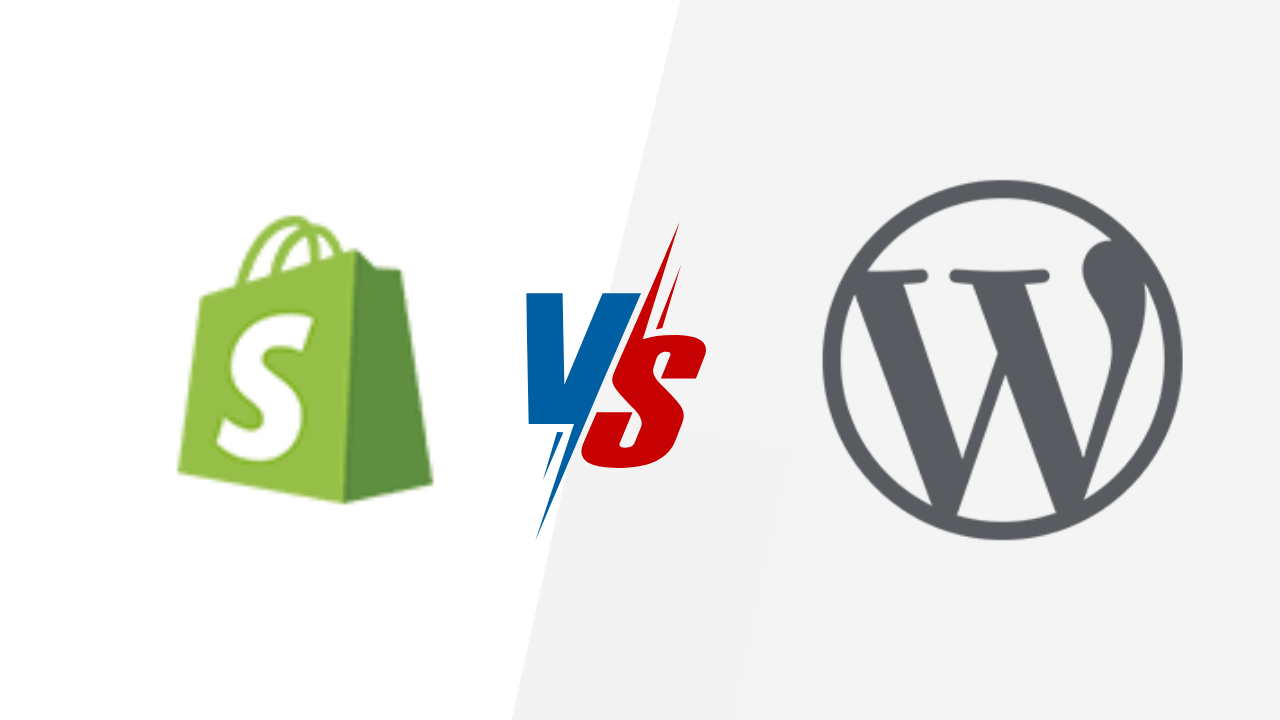
When starting an online store, one of the first big decisions you’ll make is choosing the right platform. Two of the most popular options are Shopify and WordPress. Both can help you build a great e-commerce website, but they offer different features and benefits.
To make the best decision, we’ve looked at four detailed competitor comparisons and combined the key insights into this simple and easy-to-understand guide.
What Are Shopify and WordPress?
Shopify is a platform made especially for online stores. Everything you need to sell online is built-in website templates, payment options, shipping tools, and more. It’s like a ready to use online store you can set up quickly.
WordPress, on the other hand, is a content management system (CMS). It was originally built for blogging, but with plugins like WooCommerce, you can turn it into a powerful e-commerce website. WordPress gives you more control and flexibility, but it’s also more complex to set up and maintain.
1. Ease of Setup
If you’re looking for the simplest and fastest way to get your store online, Shopify wins here.
- Shopify: You can sign up, pick a theme, add products, and launch your store within a day. Everything from hosting to security is included. It’s designed for people who don’t have technical skills.
- WordPress: With WordPress, you’ll need to buy web hosting, install WordPress, then install and set up WooCommerce. You also need to manage backups and security yourself or use third-party services.
2. SEO (Search Engine Optimization)
Getting your store to show up on Google is important, and both platforms handle SEO well but in different ways.
- WordPress: WordPress, especially with SEO plugins like Yoast, gives you more control over things like meta tags, sitemaps, and schema markup. This means you can fine-tune your SEO strategy more easily.
- Shopify: Shopify does a good job with SEO basics and is fast-loading (which helps Google rankings). However, some users feel limited when customizing advanced SEO settings.
- Subdomain Issue: If you use a WordPress blog on a subdomain (like blog.mystore.com) instead of a subfolder (like mystore.com/blog), it can slightly hurt your SEO. Shopify blogs live in a subfolder, which is better for search visibility.
3. Design and Themes
Both platforms offer beautiful website designs but the ease of keeping your blog and store looking consistent gives Shopify a small advantage.
- Shopify: Your store and blog use the same theme, so they automatically match in style. You can change colors, fonts, and layouts easily from the admin panel.
- WordPress: You can use any theme you want, and there are thousands to choose from. However, if you’re running a store on Shopify and a blog on WordPress (on a subdomain), making them look the same can be tricky. You might need a developer to help.
4. Plugins and Apps
One of the biggest strengths of WordPress is its huge plugin library.
- WordPress: There are over 55,000 free plugins. You can add nearly any feature membership areas, forums, custom forms, pop-ups, and more. This makes it ideal if you want to create a truly unique website with lots of custom features.
- Shopify: Shopify has an app store with thousands of tools, but it’s more focused on e-commerce features (like upselling, email marketing, and inventory management). There are fewer options for blogging or unique features.
5. Blogging Power
If content marketing is a big part of your strategy, WordPress has the upper hand.
- WordPress: WordPress started as a blogging platform, so it naturally handles blogging very well. You can easily add a table of contents, change post layouts, manage comments, and organize categories and tags. WordPress also gives you more options for custom blog post types and designs.
- Shopify: Shopify includes a simple blogging tool. It’s good for basic posts but lacks advanced features like table of contents, custom comments, or full blog templates. If you need these, you’d need a developer or third-party app.
6. Performance and Speed
Speed matters for both SEO and user experience.
- Shopify: Since Shopify handles hosting, security, and optimization, sites usually load quickly right out of the box. You don’t have to worry about performance settings or caching.
- WordPress: Performance depends on your web hosting and how well you optimize your site. A poorly configured WordPress store can be slow, but with good hosting and plugins, it can match Shopify’s speed.
7. Maintenance and Security
Keeping your site safe and up-to-date is very important.
- Shopify: Shopify handles all security, backups, and updates for you. You don’t need to worry about updates, broken plugins, or hackers.
- WordPress: You’re in charge of your site. That means updating WordPress, plugins, and themes regularly. You also need to install a security plugin and manage backups (or pay for a service to do this).
8. Cost Comparison
Let’s talk about money.
- Shopify: Pricing starts at around $29/month. This includes hosting, security, and basic features. Some apps cost extra so that the total may rise depending on your needs.
- WordPress: WordPress itself is free, but you’ll need to pay for hosting ($5–$30/month), a domain, premium themes or plugins, and possibly developer help. It can be cheaper or more expensive which is depending on how you build it.

